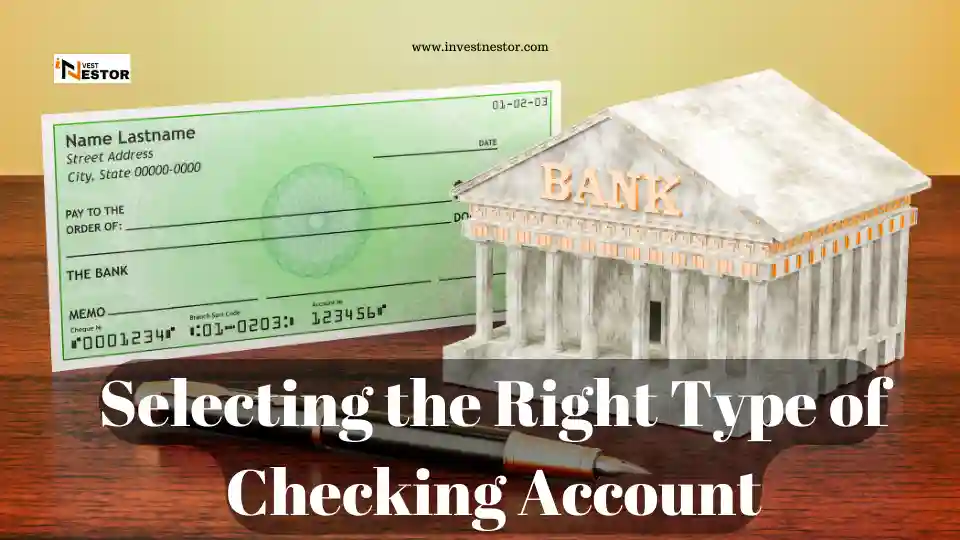
What Is a Certificate of Deposit? Types and Best CD Term Length
When considering savings, we often opt for certificates of deposit, which are one of the viable options that allow us to secure fixed interest rates for a specific duration. However, traditional certificates of deposit come with particular rules, such as you can only access your funds after the CDs mature or, if you do, you incur an early withdrawal penalty fee.
But are certificates of deposit so restrictive? Definitely not! Because there are different types of certificate of deposit options available to you, you can select the one that fulfils your needs and also provides better interest on your savings. If you are looking for some lenient options in CDs, here are the best CDs to buy that fulfil your financial objective.
Key Highlights
A certificate of deposit is an account that pays a fixed interest rate for a predetermined term.
FDIC federally insures certificates of deposit, and up to $250,000 is guaranteed.
You can choose different types of CDs according to your preference and financial needs, like Liquid CDs, High-Yield CDs, and Foreign Currency CDs.
Exploring the Different Types of CDs: Which is Right for You?
Banks and financial institutions have a wide range of CD options to cater to the unique needs and preferences of consumers. From traditional CDs to bump-up, step-up, and brokerage CDs, there are plenty of choices available for individuals seeking tailored solutions. We have listed a few types of CDs and theit time period and interest rates.

1- Traditional CDs
The traditional CD is a standard certificate of deposit account with a fixed term period, usually six months to several years. During this period, you earn a consistent fixed interest rate.
One of the key advantages of traditional CDs is that due to their fixed-term commitment, they have higher interest than regular savings accounts. Hence, it is an attractive option for those looking for a predictable return on their investment over a specified period without getting hit by interest rate fluctuations.
2- Bump Up CDs
The bump-up CD is designed in a way that allows you to increase the interest when the bank increases the annual percentage yield. It means you lock in a specific interest rate for a set time when you open a Bump Up CD. However, if during this period, the bank increases the annual percentage yield of that CD product, then a Bump-up CD gives you the option to go for a higher rate for the remaining term.
This flexibility helps in rising rates, but bump-up CDs often come with lower APY compared to traditional CDs.
3- Step Up CDs
The step-up CD is another type of certificate of deposit that provides an opportunity to benefit from increasing interest rates. Unlike Bump-up CD, in step-up CD, you are not required to request a higher rate from the bank; instead, the bank automatically increases the interest rate by a predetermined amount at specific intervals.
Step-up CDs are relatively uncommon, and there is no guarantee that the overall yield will surpass the traditional CD. Before going for a step-up CD, evaluating the annual percentage yield and the predetermined interval at which the rate can increase is essential.
4- Liquid or No Penalty CDs
A liquid CD allows investors to withdraw their funds before the CD matures, typically after the six initial days, without incurring any penalty. The annual percentage yield of liquid CDs may be higher than savings accounts or money market accounts, but they are likely to be lower than the interest offered by traditional CDs with the same term.
Suggested Articles: No-Penalty CDs: Flexible Savings with High Returns
5- Zero Coupon CDs
Zero coupon CD means purchasing it at a discounted price compared to its par value. This value represents its value at maturity. The zero coupon CD indicates that there are no periodic interest payments during the term of the CD. Investors buy such a CD at a lower cost. At maturity, they receive the total face value and the accrued interest.
The major drawback of zero coupon CDs is they are typically long-term investments, and investors only receive interest once the CD matures. Apart from this, the interest investors earn in zero coupon CDs is considered income each year, and it is liable to taxes.
6- A Callable CD
In callable CD, the investor gets an opportunity to earn a higher interest rate that comes with significant risk. In this CD, the investors can call back or redeem the CD before it reaches maturity. If you redeem the CD before it matures, the bank returns your principal and the accrued interest up to that date.
7- A Brokered CD
When you purchase a CD from a brokerage firm, it is a brokered one. To invest in such a CD, you must have a brokerage account. This type of CD offers certain advantages, like the convenience of assessing a variety of CDs without opening accounts at multiple banks to find the best one. Some banks even use brokers to serve as sales representatives for their CDs.
The major advantage of brokered CDs is that they are more liquid than traditional Bank CDs. They are traded on the secondary market, similar to bonds; however, the important note is that this liquidity also comes with potential risk, and there is no guarantee against the loss if you sell the CD before maturity. Another important part is that not all brokered CDS are backed by FDIC.
Related Articles: FDIC Insurance: What Happens to Your Money During a Bank Failure
8- High Yield CDs
High-yield CDS are traditional certificates of deposit that offer more attractive returns than average rates. Banks use this high-yield CD to complete deposits and aim to target customers with better-than-average interest rates.
9- A Jumbo CD
Jumbo CD requires a larger deposit of around $100,000 or more than traditional CDs. The significant initial deposit amount is the main feature distinguishing Jumbo CD from other CDS.
The interest rate offered by Jumbo CD may or may not be favourably compared to traditional CDs. According to a survey conducted by Bankrate, as of April 5, 2023, the average rate on a 5-year Jumbo CD is 1.30%, while the average rate on a traditional 5-year CD is 1.24%.
10- An IRA CD
An IRA CD is a deposit certificate held with a tax-advantaged individual retirement account. This CD is suitable for those individuals who are less risk-takers and prioritise building their retirement savings with guaranteed returns. The primary benefit of an IRA Certificate of Deposits is that it offers security as the returns are secured, and the investment is protected from market fluctuations. It is also important to note that this type of CD offers lower returns than other risker investment options like stocks that are also prone to market volatility and potential losses.
11- Foreign currency CD
Investing in foreign currency CD is quite complex and involves higher risk than other types of CDs. These CDs are issued in currencies like euros, British pounds, or other foreign currencies. While purchasing them, investors use US dollars, and after maturity, the investment is also converted back into US dollars. But unlike traditional CDs, there is no guaranteed annual percentage yield with foreign currency CDs because the interest is based on the performance of foreign currency.
Foreign currency CDs may offer a higher return but involves significant risk. Currency fluctuations and global economic conditions can be volatile, and any fluctuations in exchange rates can impact the return on these investments. Also, while converting the foreign currency back to the US dollar, the strength of the US dollar can erode the return, which may ultimately result in losses for the investor. Also, foreign currency CDs may not be FDIC-insured, and to qualify for FDIC insurance coverage, the issuing bank must guarantee the principal amount invested.
12- An Add-on CD
An add-on CD is a type of certificate of deposit that grants the investor the ability to make additional deposits into the CD during its term, similar to a savings account. Unlike regular CDs, where you typically create a one-time deposit and can't add more funds until the CD matures, add-on CD provides flexibility to add more funds. It is a good option for those investors who want to contribute more to their CD over time, which enhances the overall return.
How to Choose the Best Type of CD?
The crucial aspect of choosing the best certificate of deposit is finding the highest interest rate and considering your financial situation and goals. Before you decide what type of CD is best for you, look for other vital factors like interest rate, flexibility to make additional deposits or penalty fee on your withdrawals, initial deposit requirements, FDIC insurance or if your financial goals align with certain special CDs you can also go for IRA CDs or foreign currency CDS.
Final Words
To open a new CD, you must familiarise yourself with the different options available. A traditional CD can be a good option for individuals looking for a fixed-term investment with a higher interest rate. Speciality CDS has more flexibility than conventional CDS, like no penalty CD, which allows you to access your funds before the CD matures. Choosing between a traditional CD or any other special one depends on your preferences, financial needs and goals. Some seek higher interest and are willing to commit to fixed terms. In contrast, others value the flexibility and ease offered by CD. Before selecting a CD type, it is good to conduct thorough research, understand the terms, conditions and any fees associated with each CD, and ensure that the CD you choose aligns with your financial strategy.
Editor Suggestions:


 to Your Advantage.webp)



0 Comments
Add a comment